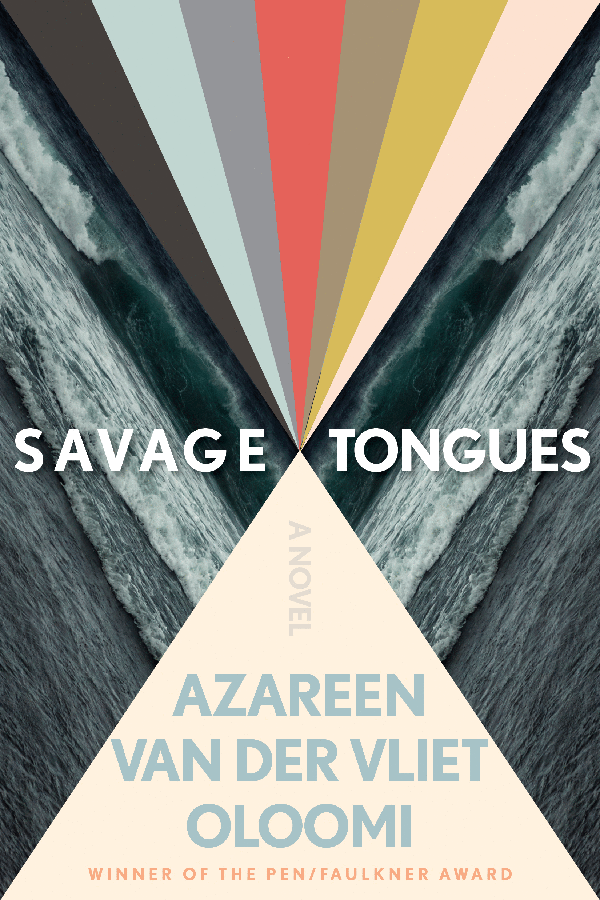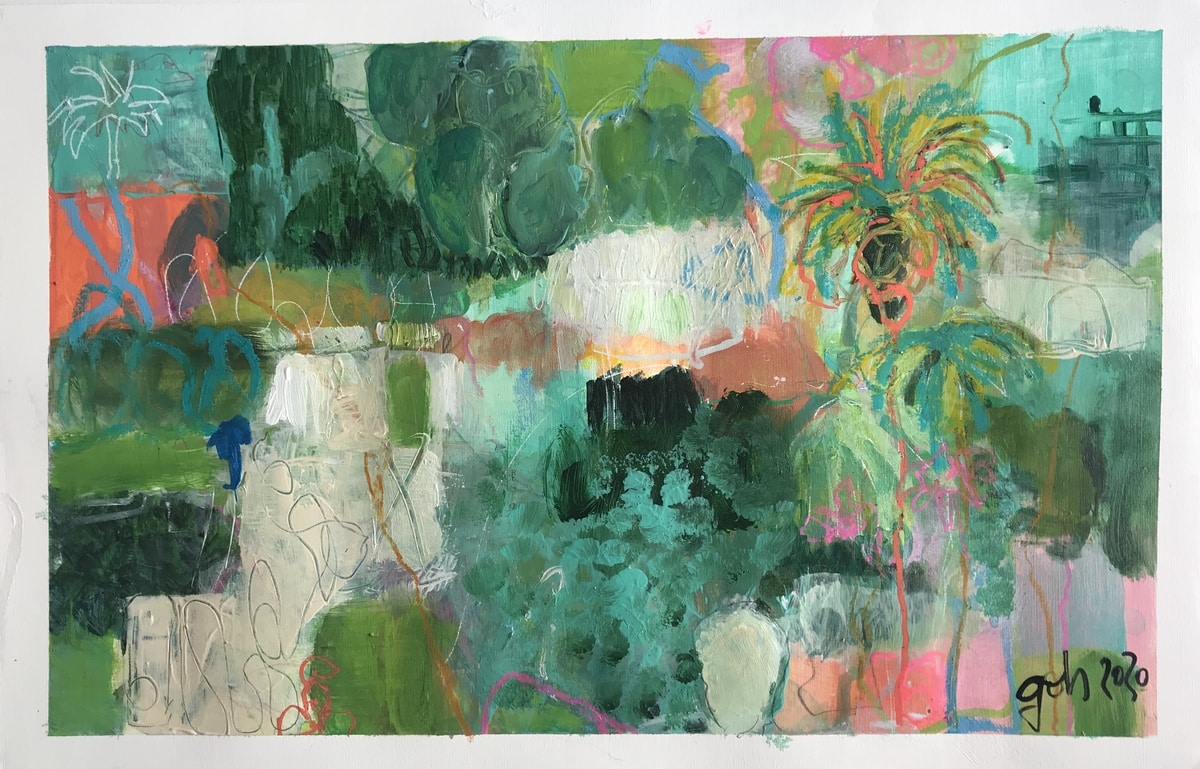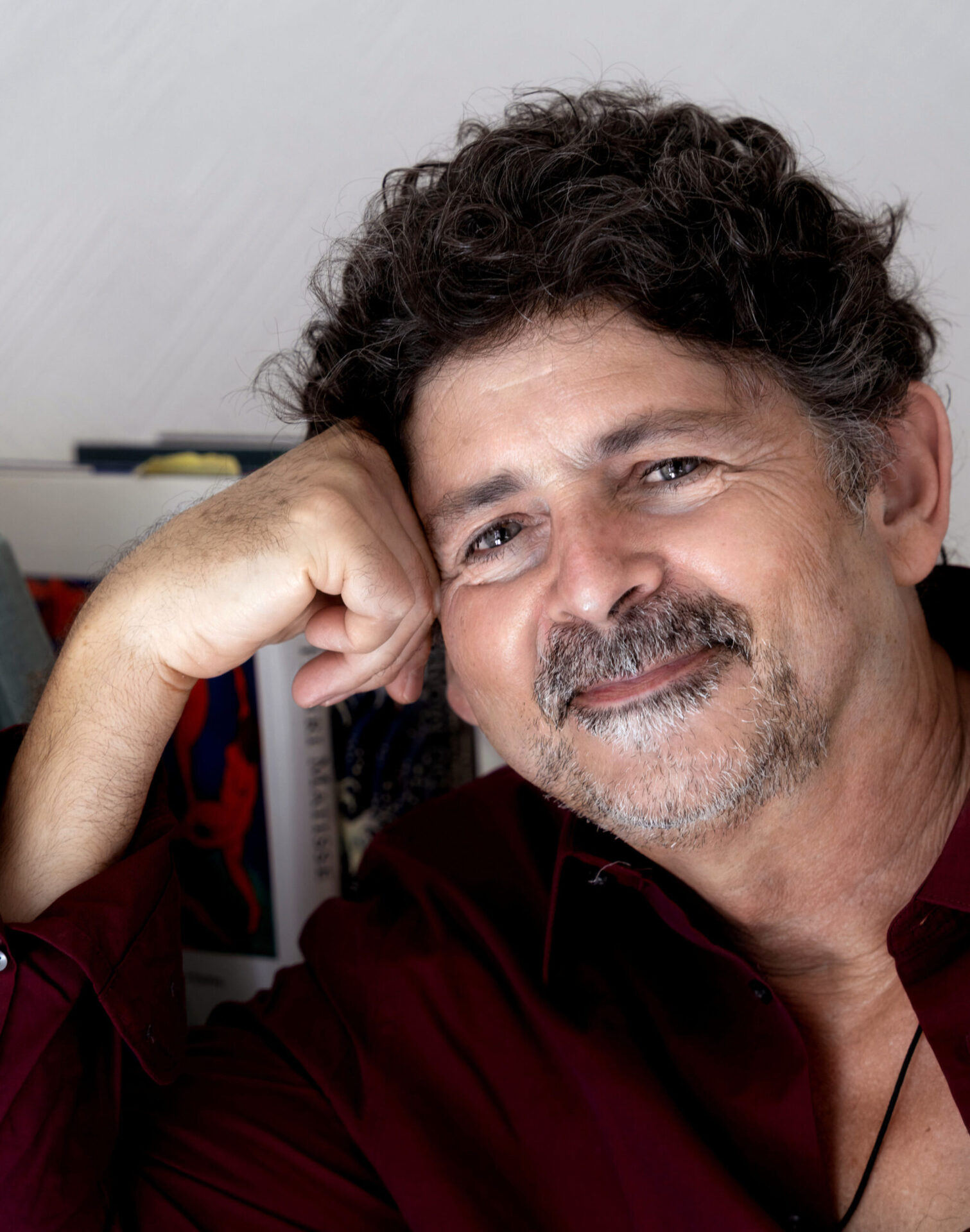A review of Savage Tongues.
Savage Tongues, a novel by Azareen Van de Vliet Oloomi
Houghton Mifflin Harcourt (2021)
ISBN 9780358315063
Jordan Elgrably
Nostalgia and trauma are not merely conceits of literature, for many of us live each day remembering what happened to us, and from time to time we ask ourselves what remains of our experience, how it shaped us, and left us changed. We wonder in retrospect, did we really get hurt — and are we still damaged? For instance, can one, in one’s body, recall the seering emotional pain that comes from sexual abuse 20 years earlier? That is the proposal of Azareen Van der Vliet Oloomi’s third novel, Savage Tongues — to explore the overheated landscapes of the past.

Although the novel journeys back and forth to Marbella, past and present, with stops in Málaga, Granada and Jerusalem, much of it takes place in the confinement of a lonely flat where one summer Oloomi’s narrator at 17 becomes the lover of her 40-year-old stepbrother. Reading at times like a diary, Savage Tongues is a memoir of alienation, of self-discovery, as Arezu judges herself two decades later, while her lover, Omar, remains a spectre, an enigma, a man guilty of seduction, and at one point (the reader will have to decide what to believe) rape.
If the novel is about Omar’s assault on the narrator’s 17-year-old self, she mitigates her judgment only 40 pages in: “His compulsion to assault my body, however unforgivable, was minute compared to the disfigurement that had been engineered by the West against us both, and these losses, layered on top of one another, formed an entangled whole.”
At one point, Arezu suggests that she stayed on in Marbella that summer long ago, “because I was in love with Omar” (italics are the author’s).
Arezu is half Iranian and half British, and it is her estranged British father who has given her the keys to his Marbella flat, where he is meant to meet her, but never shows up. Instead, he sends the son of his second wife, who is Lebanese, and something of a shrew. Omar is a tall Arab hunk who arrives on a silver Ducati and quickly seduces the teenager he was sent to assist. If Omar is the villain and even named as a “predator” at one point in this story, Arezu seems to have most of the agency here, and all of the words to describe what she remembers, particularly in conversation with her best friend Ellie, the novel’s other major character, a self-hating Israeli American, who happens to be queer.
We know who Arezu is almost from the start, as she assures us that “normal societal rules have never been a part of my life. They do not interest me.” Both women had sexualized experiences as teenagers, one in Marbella, the other in Jerusalem; one in an apartment alone with a 40-year-old lover, the other passed from one guy to another, sometimes living on the street. Their experiences at times translate to trauma, at other times, questionable memories, much like eye witness testimony in criminal court.
No matter what, Arezu and Ellie have each other.
The author writes brazenly, directly about sex, penises and vaginas, as is the style of her generation. Does it ever seem at all scandalous? Not in the least. But sex in the novel is only interesting in a forensic sense — it is not about the physical pleasure or sensuality that may have been extant, but rather, the potential emotional damage that occurred. In this way, the reader begins to think of her/his own experiences and behavior, questioning what purpose a given relationship might have served.
The action of the story comes primarily in the travels in which Arezu and Ellie are companions, but not lovers. The narrator calls these trips recovery journeys — as she and Ellie travel to work on their bruised internal selves.
Sometimes what the author wants is to analyze emotional and sexual abuse, while exploring Arab, Muslim and Jewish life — in Spain, in Israel, in the United States, but not in Lebanon or Iran, where the novel doesn’t take us. At times, Savage Tongues reminded me vaguely of that classic British novel about love and misspent youth, The Magus, but I found I wanted to know much more about Arezu and her Iranian mother and poor brother, who was the victim of a brutal attack by white supremacists in the United States, where the family winds up after the divorce from her British father.
The author spends a great deal of time with Ellie and her loathing of Israel, equating her loneliness and alienation from her family with her regard for the Palestinians, as Ellie’s “belief that they had a right to self-determination — was considered an unforgivable transgression by her family and community” … “And that meant that she was alone in the world, trapped in an absurd paradox: she was complicit in the violence enacted against Palestinians at the same time that she was disowned by her family for denouncing the crimes of the state and the hypocrisy of the people who denied Palestinians their dignity, their humanity, their basic civil rights, who treated Black and Mizrahi Jews as second-class citizens.”
As Savage Tongues begins to approach its finale, Arezu sums up how she and Ellie experienced both sexual violence and pleasure, but as a reader, one feels that the drama and the feelings are muted, quite as if there’s a varnish, a coating over everything, preserving its memory but numbing our feelings, when Ellie, like Arezu, “understood the pain of knowing that our bodies had experienced pleasure even in the midst of undeniable violence.” And that is perhaps the point, the purpose, of this story — to assert that while we can intellectually recall the details of our past, remembering the worst and the best about our lovers, we cannot be certain that what we recall today resembles closely what we lived years earlier. For the truth is, all experience becomes transmogrified by time, such that we’re rarely certain that we know what we know, and so we are only left with filaments, not flowers in full bloom. They may be meaningful, but they remain incomplete.




